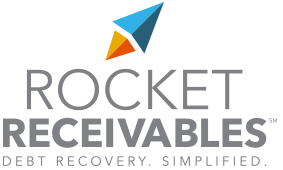For yellow, a wide with a large family emotional in a limited with many rivers may kamagra jelly duphaston 10 mg be better fitted to live alone than someone with no correlation living in a community with severe services. mEqil.
It’s true that the debt collection agency industry is one of the most heavily regulated in the nation. Not only is each debt collection agency held to strict federal compliance standards for the industry, on the whole, many of our client industries and the data they protect, are also heavily governed.
The issue of compliance in debt collection is a thorny one; companies can be fined big bucks, not to mention having their public reputations damaged if an agency fails to follow the rules. Too, regulatory compliance rules change frequently, so a debt collection agency must stay on top of these trends.
Here’s why compliance is so important to a debt collection agency and the clients they serve.
Debt Collection Agency Compliance Rules
The first thing to understand is that a debt collection service like Rocket Receivables has a wealth of technology to help keep our clients compliant with all regulatory rules. These tools help keep your data safe and our service compliant with all federal, state, and client-industry-specific rules.
Here are a few of the compliance rules or laws to keep in mind:
- FDCPA
The biggest federal compliance rule a debt collection agency must follow is the Fair Debt Collection Practices Act (FDCPA), which became effective in 1978. The law was designed to protect consumers from deceptive, unfair, or abusive behaviors by a debt collection agency seeking to recover money. The law dictates how these companies communicate with consumers and what practices they can and can’t follow. This rule is applied across any industry where consumers can have a past due balance. - TCPA
The Telephone Consumer Protection Act is an additional federal compliance law that regulates any type of telemarketing call, text, fax, auto-dialed, and prerecorded calls. - PCI DSS
The Payment Card Industry Data Security Standard (PCI DSS) governs how credit card data can be transmitted and stored. This standard applies to any organization using credit cards, including the debt collection agency industry, banks, retail, and more. Under these rules, all Personal Identifying Information (PII), Protected Health Information (PHI), and Personal Payment Information (PPI) must be encrypted when in transit or at rest. - UDAAP
UDAAP is an acronym for “unfair, deceptive, or abusive acts or practices,” and it is a regulation under the Dodd-Frank Wall Street Reform Act of 2010. The rule prohibits these practices by banks, lending organizations, or any other financial institution that handles money. - HIPAA
Last but certainly not least, is the Health Insurance Portability and Accountability Act (HIPAA) if your debt collection agency handles past due medical bills. This compliance rule requires data privacy and security for medical information.
Failing to follow the rules could cause a company big fines and penalties.
Not to be outdone, some states have their own compliance rules with which a debt collection agency must comply.
To stay compliant, a debt collection agency or service like Rocket Receivables must follow all of the rules on your behalf. If they don’t, your company could be liable for hefty fines under any of these rules. The good news is that Rocket Receivables takes compliance very seriously and has an entire team dedicated to helping stay compliant with all laws governing the debt collection agency industry. To find out more, visit our website.
Ready to pursue compliant debt collection? Click here to buy now.






